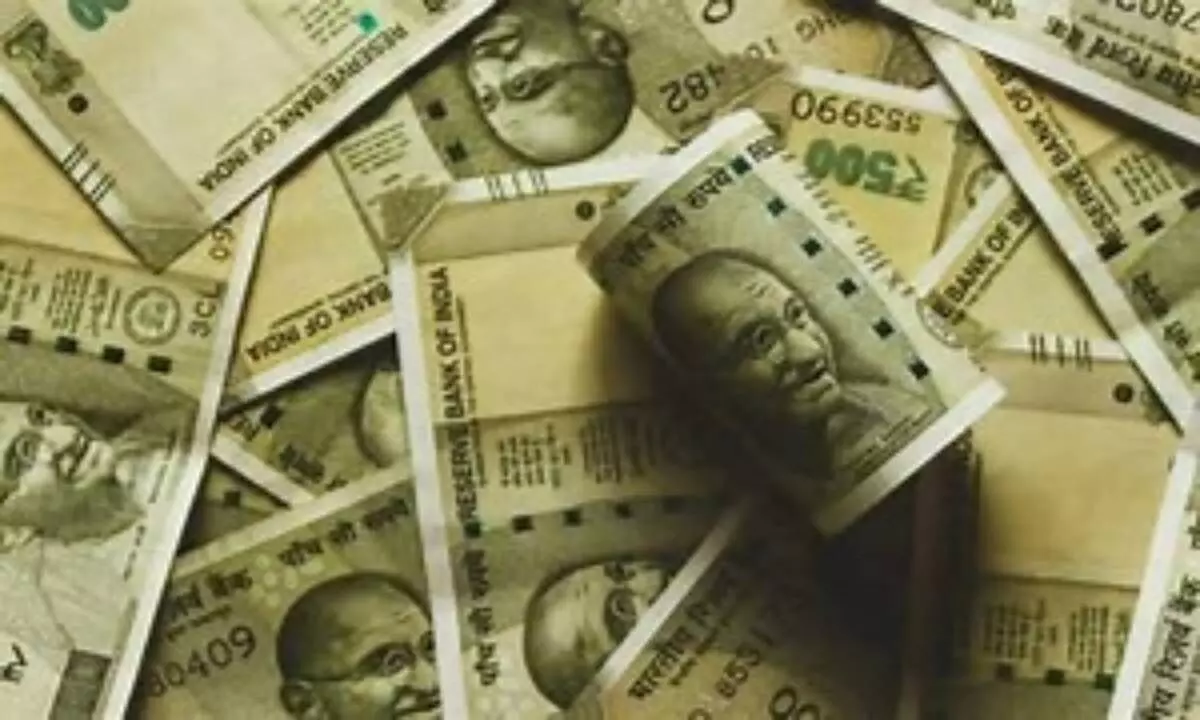Amid high inflation & weak rupee, Fin Min review says economic performance 'impressive'
Even as economic growth and rising inflation remain major concerns for India, with Finance Minister Nirmala Sitharaman saying that these twin challenges would be in focus in the next Union Budget, the monthly economic review for September has said that country's economic performance has been "impressive" in the first half of 2022-23.
image for illustrative purpose

New Delhi, Oct 22 Even as economic growth and rising inflation remain major concerns for India, with Finance Minister Nirmala Sitharaman saying that these twin challenges would be in focus in the next Union Budget, the monthly economic review for September has said that country's economic performance has been "impressive" in the first half of 2022-23.
"Indian economic performance in the first half of 2022-23 has been impressive compared to the world. As measured by PMI composite index, the economic activity level was higher for India at 56.7 compared to 51.0 for the World level during April-Sept 2022," said the economic review which was released on Saturday by the Finance Ministry.
"While wholesale inflation has significantly reduced from its peak of 16.6 per cent in May 2022 to 10.7 per cent in September 2022 on account of moderating commodity prices and government measures, retail inflation remains above the RBI's upper tolerance band due to an uptick in food prices. However, food inflation is expected to moderate as the harvesting and procurement seasons progress, thereby contributing to a declining headline retail inflation in the rest of the fiscal year," it said while elaborating on inflation.
"On the external front, the rupee has performed relatively well in first half of 2022-23 compared to other major economies, reflecting the strong fundamentals of the Indian economy."
The rupee incidentally had touched a historic low of 83.18 earlier this week, even as Sitharaman said that she saw it more as a case of the dollar strengthening than the rupee falling.
The economic review for September 2022 however noted that "the country should be able to meet these challenges and keep the economy growing steadily".
"Prudent macroeconomic policies that have served the country well since 2014 continue to remain essential. As is the case with batting in swinging conditions, balls well-left (policy errors avoided) will be as important as balls played well (policy decisions taken)," it said.
The Central government's continuous thrust on capital expenditure promotes broad-based growth by facilitating private sector capital formation. Significant pick-up in consumption has resulted in a more-than-proportionate jump in GST revenues, a more robust economic recovery could allow the collections to settle at an elevated level, proving the high revenue productivity of the broad-based consumption, the review further noted.
A well-capitalised banking system has led to an upswing in credit disbursement to the retail, industry and services segments.
"High-Frequency Indicators (HFIs) suggest a continued broadening of traction in services activity. E-way bills, in particular, point to the overall growth of inter-state wholesale and retail trade.
"Going forward, the pent-up demand in the services sector, combined with a strong economic outlook for India, will drive growth in the service sector," the review said.
Service sector firms are positive about demand conditions, sales turnover, their hiring plans and the overall business situation they expect in third quarter of the current fiscal.
However it cautioned that "even as India remains one of the bright spots in an otherwise gloomy global scenario where the dark clouds of recession gather, the country's fiscal and monetary authorities must remain watchful. The globalised nature of India's economy portends that even as inflationary pressures abate, another challenge to macroeconomic stability will rear its head in the form of external sector pressures".
On the one hand, the US Federal Reserve continues to be aggressive in the fight against inflation, thereby signalling further interest rate hikes. This may lower capital inflows, increase pressure on the rupee to depreciate, and make imports of essential commodities costlier. On the other hand, an unfavourable global economic outlook is bound to moderate the growth of exports, affecting the country's trade balance, the review said.

